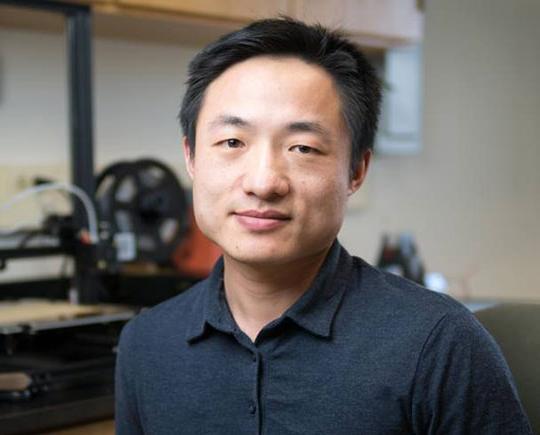Professor Junjun Ding, PhD students publish article on energy storage research

An article written by Junjun Ding, associate professor of materials science and engineering in Alfred University’s Inamori School of Engineering, and two of his graduate students was published in a recent issue of the American Chemical Society’s Applied Materials & Interfaces.
The article, titled “High Areal Capacitance and Rate Capability of 3D-Printed Thick Electrodes with Optimized Conductive Networks from the Core-Sheath Structure” appeared in the Aug. 26 issue of ACS Applied Materials and Interfaces.
The article explores groundbreaking advancements in energy storage, discussing research by Ding and graduate students Yuqi Gao and Chao Liu. Gao earned a doctoral degree in materials science and engineering from Alfred University in 2023; Liu is expected to earn his PhD in materials science and engineering from Alfred University in December 2024.
 The research outlined in the article focuses on the use of 3D printing technology to design thick electrodes with core-sheath structures, enhancing the performance of supercapacitors. Ding said this innovation “promises significant improvements in energy storage efficiency, with broad implications for future technologies.”
The research outlined in the article focuses on the use of 3D printing technology to design thick electrodes with core-sheath structures, enhancing the performance of supercapacitors. Ding said this innovation “promises significant improvements in energy storage efficiency, with broad implications for future technologies.”
Ding’s research lab in the Inamori School of Engineering specializes in advanced materials for energy storage and conversion, 3D printing technologies, supercapacitors, battery materials, and additive manufacturing of composites and ceramics. Research extends to applications in sensors, energy storage, and flexible electronics, driving forward cutting-edge solutions for global energy and technology challenges.
